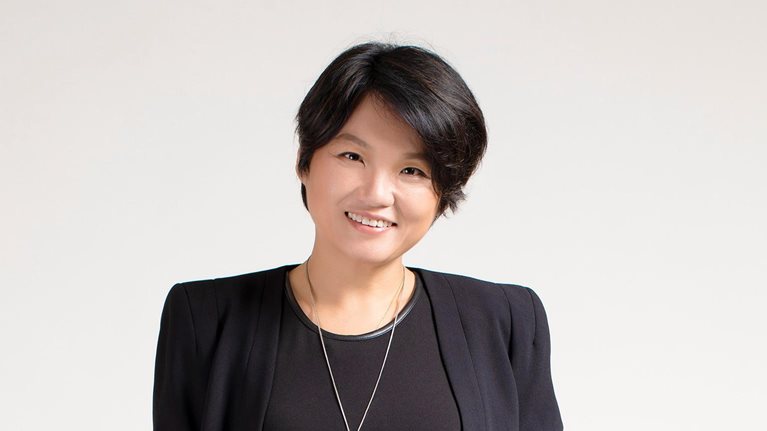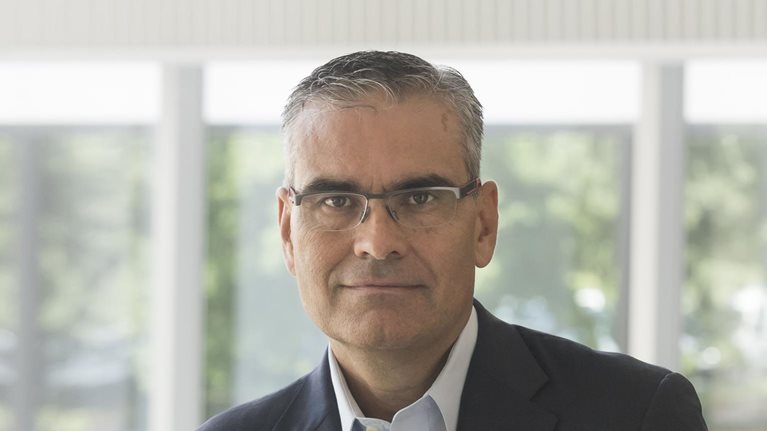The massive uncertainty around COVID-19 has fixed some companies—and managers—in place, making them unable to react quickly to the changes affecting their business. But for others, it’s been a catalyst for change and an opportunity to gain new insights about their customers’ needs and to demonstrate their agility to adapt and grow.
One leader who has adopted the latter approach is Keith Choy, the head of the Asia–Pacific unit of GlaxoSmithKline’s (GSK) Consumer Healthcare group. Choy is encouraging his team of 6,000 people to consider the pandemic a call to action, a chance to double down on existing digitalization initiatives and strengthen end-to-end supply chains to even better respond to emerging consumption trends across the 23 Asia–Pacific markets the company serves. All while speeding up the cadence of the company.
In October, Choy spoke with McKinsey’s Kenneth Bonheure and David Schwartz to describe how GSK is responding to COVID-19, how the company is guided by its values, and what global companies can do to succeed in Asia during COVID-19 and beyond.
The Quarterly: Describe the business environment right now. What are you seeing? What are you focusing on?
Keith Choy: I’m thinking about speed, and how fast we can adapt to the new normal. If we don’t accelerate, we will lag behind. Even before the pandemic, people were getting more digitalized and using technology in ways we couldn’t imagine before. We need to accelerate our use of digital to engage with consumers, customers, and healthcare professionals—all of whom are leveraging more and more digital technology to get information.
Look at digital commerce, and the O2O [online-to-offline] model in China. People place their orders online in 30 seconds and get their over-the-counter products from the pharmacy within 30 minutes. We need to analyze and incorporate the lessons from these channel shifts. And this requires accelerating the development of new capabilities.
The Quarterly: What sorts of capabilities?
Keith Choy: There are data and technology skills that we’ll need to either build or acquire. That’s largely a question of how fast we can build this capability. Just this morning, for example, I was talking with the team about it; we are building an end-to-end consumer-data-management platform with different layers, and we need to build out the data framework, operationalize it, and find the talent pool to support it.
We’ve also been on a journey since before COVID-19 to become more agile, to be an execution powerhouse. The necessary growth mindset is not learned overnight. Still, we faced a big learning curve during the first few months of the pandemic, and we responded very quickly.
We’ve been on a journey since before COVID-19 to become more agile, to be an execution powerhouse. The necessary growth mindset is not learned overnight.
The Quarterly: What has the pandemic meant for your operations, and your supply chain?
Keith Choy: We have high visibility of our demand and inventory levels—every day, every hour, we know in real time where we are. We have a great supply-chain team. But forecasting demand is very hard, and during the COVID-19 lockdowns we had to very quickly look at our supply chains, our stock, and consumer demand to figure out how we could deliver products to customers even faster.
To get products to Australia, for example, we used air freight—a very different approach from before, when our supply chain was focused on efficient, just-in-time delivery, and on reducing cost with a single inventory. Air-freight shipping incurred higher costs, but we didn’t see it merely as a matter of profitability; rather, we are fulfilling our mission and commitment to customers and consumers. Our integrity and company reputation come first, and our leaders were decisive and made the call quickly to mobilize stock.
The Quarterly: How else do company values and your mission come into play?
Keith Choy: Our mission is to help people do more, feel better, and live longer. Our consumers and patients come first. We strive to be consumer obsessed. In China, during the pandemic, and even Chinese New Year, our manufacturing site employees still went back to work; our supply chain continued to deliver products to customers. We demonstrated a deep commitment to help patients even as we worked to keep our employees safe and healthy.
The Quarterly: What are the biggest opportunities that you see right now in consumer health?
Keith Choy: The thing that excites me most is consumer wellness and preventative health. Our consumers are increasingly looking to take more control over their health. People are looking for supplements to boost their immune systems, for example. It’s a strategic opportunity that fits well within our portfolio and leverages our scientific research. We can also tap into our data to understand our consumers better and bring that knowledge into our product innovation. The end-to-end approach is really exciting.
Our mission is to help people do more, feel better, and live longer. Our consumers and patients come first. We strive to be consumer obsessed.
The Quarterly: What most worries you?
Keith Choy: That we don’t know what we don’t know. We don’t have a crystal ball. When is a vaccine coming? What changes in consumer behavior will stick post-COVID? How can we be consumer obsessed and understand consumers in a quick and deep way so that we can respond and proactively manage their unmet needs? Are we being fast enough?
The Quarterly: How does decision making factor into speed? What’s your approach?
Keith Choy: An advantage of GSK is that it’s globally guided and locally led. We’re given guiding principles, then it’s the local GM, the leadership team, that make many of the decisions because they’re close to the markets, and consumers. For example, I don’t have the insight into what’s happening in India during the lockdown that my colleagues there do. Our decision tree is based on empowerment of our people—the trust of the leadership in the people on the ground. We give them whatever support and resources we can. In that sense, decision making is on the local level.
On the more regional level, a leader puts the team together and keeps a close connection with everyone, every week. We have two, three virtual meetings every week where we share and learn from each other. Teams in China, for instance, have a lot of lessons they can share from their experience managing the pandemic crisis and adapting to the new normal. It’s also a learning process. When things work out, we do more. If a thing doesn’t work out, we adjust quickly. That goes again to speed, how fast we can respond and proactively manage the situation by leveraging what we know from the other markets.
The Quarterly: Speaking of markets, how do you think about Asia? What’s different about competing in Asia, compared with the West?
Keith Choy: Asia is composed of diverse cultures and economies at different stages of development. You have Australia, that’s more Western and developed; other developed countries like South Korea and Japan; and emerging and fast-developing countries like China and India. The way I look at it, Asian companies benefit because they have to be more in tune with so many local cultures. They’re more agile, and quicker in adapting to consumer needs. Look at China: the local companies there have creative business models that help them respond very rapidly.
Western companies have the benefit of global insight and brand-building experience. Consumer brands like GSK’s Panadol or Centrum are well known and trusted. The disadvantage for Western companies is that they can be less agile than Asian companies, because they are used to a “global” uniform way of working. We try to balance “global” and “local” by empowering local leaders and simplifying processes.
Asian companies benefit because they have to be more in tune with so many local cultures. They’re more agile, and quicker in adapting to consumer needs.
The Quarterly: What traits do you look for in your leaders?
Keith Choy: The first quality I look for is how they prioritize; I want to see how they consider opportunities and challenges and if they can quickly identify priorities. The second is how they shoulder their leadership responsibilities and accountabilities, and how well they connect with people even under remote conditions, like lockdowns. I’m impressed by leaders who connect and care; they have adapted their engagement programs, and they recognize the effort of the team.
The third trait is whether they are able to execute. We can have strategy, but execution is key. High-quality leaders engage the customer and use technology to help improve our merchandising and consumer touch points. Leaders have to be decisive, quick, and agile when it comes to delivering customer engagement.
The Quarterly: What about your own leadership style—has COVID-19 changed how you lead?
Keith Choy: For me, the most important thing during this period is resilience. This is not a short battle. I told my team: “We don’t know how long the pandemic will last. Preserve your energy. Don’t expend too much energy with too many meetings.” I’ve become very purposeful with meetings, in fact. If it’s just an informational meeting, I’ll decline. I also carefully consider who the participants should be.
I’m also very conscious about role modeling. It’s important to show empathy and care for people, and that’s not just about using words. It’s about connecting with them one-on-one, more closely. And when other people in the organization do the same thing, it cascades. How we value our employees is very important. I feel lucky to be a leader. Of course, we also have to make tough decisions about how we want to deploy resources. We want to make these decisions in a way that will lead to more positive impact. That decision, again, is part of GSK’s mission and values, which we constantly seek to demonstrate to our employees.


